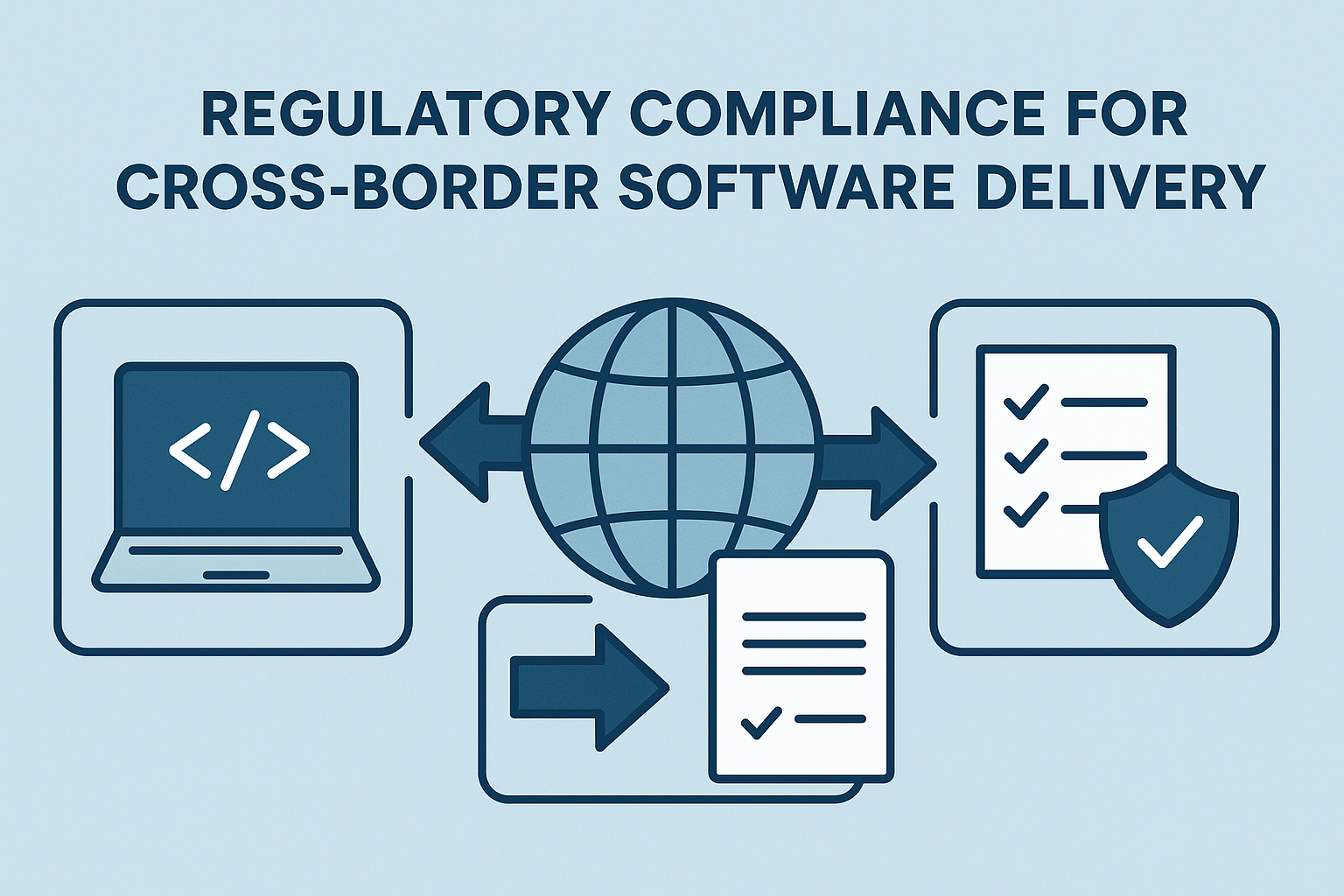Global reach requires local responsibility. Compliance isn’t just a checkbox—it’s an ongoing commitment.
Why Compliance Matters in a Global Development Model
As companies embrace cross-border software delivery—offshoring, nearshoring, and distributed teams—regulatory compliance becomes a foundational concern. Different regions have different legal requirements, from data protection laws to labor regulations. Failing to comply can lead to steep penalties, lawsuits, or reputational damage.
Cross-border collaboration isn’t just about shipping code; it’s about navigating a global legal landscape that governs how that code is built, stored, tested, and delivered.
Key Compliance Domains to Watch
Data Protection & Privacy
GDPR (Europe): Governs how personal data is collected, stored, and
CCPA (California) and DPDP (India): Regional equivalents with serious enforcement teeth.
Cross-border data transfers often require standard contractual clauses (SCCs) or data processing agreements (DPAs).
Intellectual Property (IP) Laws
Your contracts must clearly establish who owns the code, especially when using offshore developers.
Some regions have weak IP protections—risk must be mitigated with NDAs, strong contracts, and legal jurisdiction clauses.
Labor and Tax Regulations
Outsourcing agreements must respect local labor rights, work hours, and termination laws.
Countries may require withholding taxes, permanent establishment declarations, or contractor vs. employee classification compliance.
Export Control Regulations
Sensitive software—especially with cryptography—may be subject to export controls (like U.S. EAR or ITAR laws).
Sharing source code across borders may violate these laws without proper licensing.
How to Stay Compliant
Local Legal Counsel: Always consult a local legal advisor in the vendor’s country before engaging long-term.
Standardized Legal Frameworks: Use globally recognized contract formats with IP clauses, indemnities, and compliance checklists.
Audit Trails: Maintain logs of data access, commits, and communication to demonstrate due diligence.
Vendor Assessments: Conduct legal and security audits before onboarding partners.
Onboarding Protocols: Ensure every team member (internal or external) goes through training on compliance expectations.
Building a Compliance Culture
Compliance isn’t just a legal team’s job—it’s a team-wide mindset. Developers need to understand what data they can touch, testers should know what can be shared, and team leads must ensure proper documentation.
Create compliance playbooks tailored to your delivery model and update them as regulations evolve. In distributed setups, assign compliance champions across time zones to monitor adherence.
Conclusion
Cross-border development offers speed and scale—but without proper regulatory grounding, it becomes a liability. In a world where data is power and privacy is law, successful software delivery means being technically sharp and legally aware.
Compliance isn’t a blocker. It’s an enabler of sustainable, scalable, and ethical global delivery.





